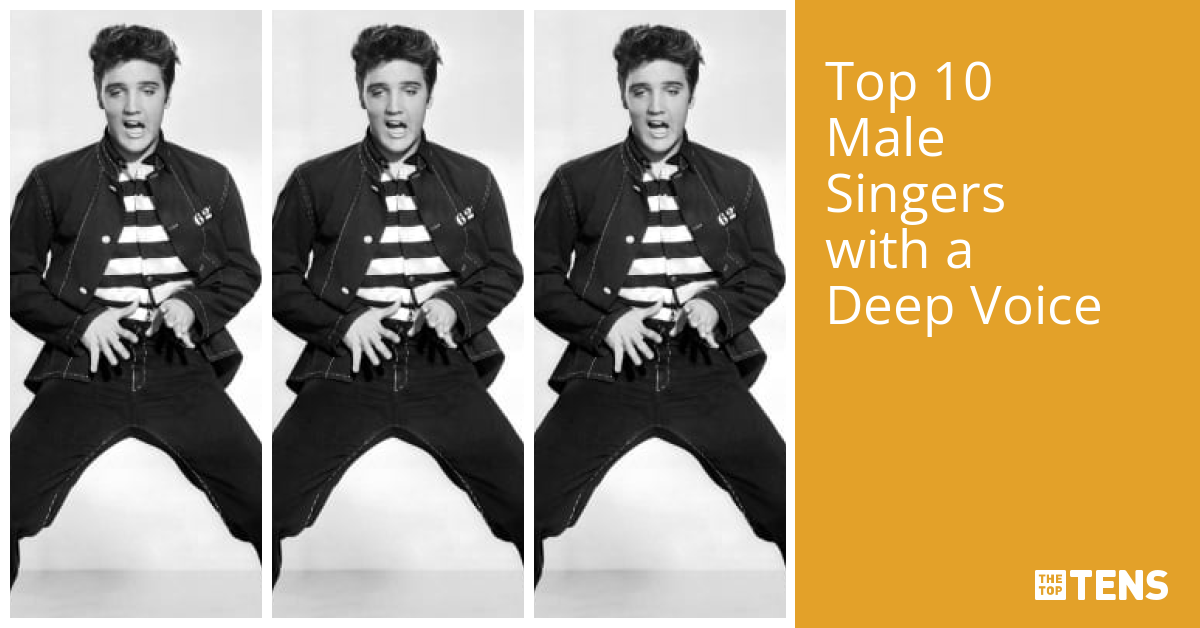Deep voices have long held a paramount position within the tapestry of musical expression. This phenomenon is particularly pronounced among Black male singers, whose powerful and resonant vocal quality transcends mere entertainment; it evokes an array of emotions while providing a unique lens through which to examine cultural identity and healing. This exploration will contemplate several illustrious figures who have contributed to this auditory legacy, intermingling their artistry with a broader sociocultural context, thus invoking the principles of cultural relativism.
The concept of a “deep voice” extends beyond physical pitch; it embodies emotional gravitas and a sonorous timbre that can alter the listener’s psychological landscape. In the realm of Black male vocalists, such profundity often signifies not only musical prowess but also a connection to ancestral lineage, social commentary, and the collective memory of a people burdened yet resilient. Consequently, artists who possess this vocal quality have historically taken on roles as cultural leaders and commentators. This exploration will illuminate several exemplars of this phenomenon.
One cannot commence this discussion without acknowledging the inimitable voice of Barry White, a baritone whose vocal expressions have become emblematic of love and sensuality. His significant contributions to the genre of soul and R&B during the 1970s captured the ethos of a generation. White’s deep, velvety tones were adept at inducing a sense of intimacy, enabling listeners to engage with themes of romance that resonated deeply within Black communities. The cultural ramifications of White’s work extend beyond mere commercial success; they serve as a testament to the intersection of sound and socio-emotional experience in empowering marginalized voices.
Transitioning to the realm of jazz, one must pay homage to the sultry baritone of Nat King Cole. His smooth voice not only carved a niche for jazz within mainstream culture but also symbolized the complexities of racial dynamics in mid-20th century America. Cole navigated the choppy waters of a segregated society, his voice a balm that bridged divides among diverse audiences. His interpretation of popular standards and the genius behind his piano artistry elevated Black musical traditions, intertwining them with broader cultural narratives. Thus, an examination of Cole reveals how a deep voice can function as a vehicle for both personal expression and societal commentary.
Further illustrating this phenomenon is the dynamic presence of Louis Armstrong, whose gravelly tone belied a rich emotional reservoir that captivated listeners worldwide. Armstrong, often heralded for his innovative approach to jazz, utilized his deep voice to convey a spectrum of emotions, from jubilation to profound sorrow. His cultural significance is compounded by the social context in which he performed. As a Black man in the early 20th century, Armstrong’s artistry was subversive, challenging racial stereotypes and affirmatively asserting his identity. The duality of his vocal delivery mirrored the complexities of his lived experiences, encapsulating the struggles and triumphs of the African American community.
The exploration of these singers leads to a broader contemplation of the stylistic divergences within the realm of deep-voiced male vocalists. While some, like Teddy Pendergrass, employed their profound timbre within the conventions of soul and R&B, others such as Otis Redding infused their deep vocal presence into the very fabric of Southern soul. The game-changing vocals of Pendergrass not only exemplified romantic yearning but also challenged gender norms by incorporating vulnerability into his artistry. Hence, the multifaceted nature of a deep voice serves as a cultural artifact, reflecting the individual artist’s identity while simultaneously engaging with existing cultural narratives.
Moreover, the contemporary landscape houses figures like Idris Elba, whose foray into music has garnered attention not solely for personal artistry but also for the overarching significance of voice within cultural representation. Known primarily as an actor, Elba’s deep voice commands authority, further complicating the notion of a deep male voice within modern contexts. His contributions to music—whether through speaking engagements or collaborative projects—reveal an ongoing evolution of vocal identity within diverse cultural frameworks. This intermingling of domains illustrates the fluidity of cultural expression and the ongoing significance of vocal depth as a marker of identity and artistry.
The cultural resonance of deep-voiced Black male singers extends beyond mere entertainment; it often functions as a form of advocacy and social expression. Genres such as hip-hop and rap, while distinct in their lyrical focus, heavily rely on a rich vocal tradition. Artists like James Earl Jones, though primarily known for acting, also contributed vocal profundity to the musical landscape. His voice became synonymous with authority, showcasing how deep voices can traverse genres and maintain cultural relevance.
The legacy of these singers encapsulates a complex relationship between vocal ability and cultural identity. Each artist represents a facet of the broader African American experience, harnessing their vocal gifts to articulate personal narratives that resonate with collective memory. Thus, their continued study offers valuable insights into the intersections of music, culture, and identity, exemplifying cultural relativism by affirming that no single narrative dictates the significance of a deep voice. Instead, these voices coalesce to create a richer understanding of the human condition.
In conclusion, the powerful vocals of Black male singers embody an exquisite interplay between sound and culture, acting as both a reflection of individual artistry and a canvas upon which broader social narratives are painted. Their deep voices carry the weight of history, encapsulating the joys and tribulations that shape the African American experience. By engaging with this vocal legacy through the lens of cultural relativism, we gain not only appreciation for their artistry but also a deeper understanding of the sociocultural contexts that have spurred their ascendance within the musical pantheon.
